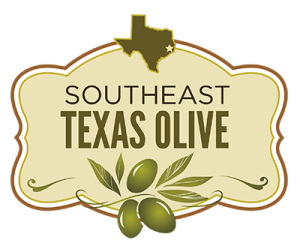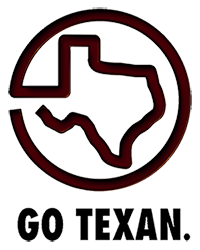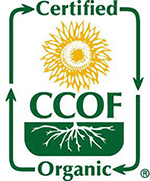By David Taylor
https://www.chron.com/neighborhood/dayton/news/article/Olive-farm-survives-Harvey-ravages-12267254.php
For nearly a year, Randy Brazil and his wife Monica and their partners were riding a wave of success.
The couple spent years quietly investing in their olive orchard in Devers and last year made their big splash with a marketing strategy and competition win that brought them almost instant notoriety with their company, Southeast Texas Olive Oil.
But that wave of joy soon became as much as five feet of water in the orchard in some spots, and a couple of feet or more in their pasture and home when the hurricane hit. They could only watch helpless as Hurricane Harvey washed away their dream.
“It just breaks our heart that we’ve had to put all of this on the backburner so that we can get our lives somewhat back to normal,” he said looking at the rows of trees and overgrown grass that reaches several feet high. It was not the beautifully manicured rows that had produced their success but this was reality – for now.
Neither of them had been to the orchard since driving up to the gate in the driving rain and losing their home.
“From the road it looked like a lot of yellow,” he said expecting a lot of dead trees, but as it turns out, it was only ragweed that had begun to grow up in the midst of the trees and they were still a beautiful forest green.
After a quick turn through the orchard, it appeared they lost maybe a half dozen trees and maybe a few more that appeared to be in distress from too much water, but otherwise, their investment survived.
Parts of the property became a river of water trying to reach the bayou.
“The backside of the farm wasn’t too bad,” he said and that’s where his cattle stayed until the water went down.
The land was covered with water for four days.
“I was really discouraged at first. I was just overwhelmed after losing my house and facing retirement next year,” he said.
The bottling and labeling facility will have to be ripped out and rebuilt.
“We’ll have to order new labels. They were destroyed in the flood as well,” he said.
Brazil, who has about 100 cattle on his 600-acre ranch, owns the olive farm and will retire from Covestro next year.
He and his wife have lived on the farm for the last 13 years and never dreamed they would be in this predicament.
About 10 years ago, the 120-acres close to Brazil where the olive farm sits was up for sale.
Gino Venitucci, a graduate of Texas A&M, purchased the land and decided to farm. The Italian grew up in northern Italy, moved to the states and married a girl from Kilgore. He spent most of his life working around the world in the petroleum industry.
He retired and with a friend from Texas Tech, researched the Gulf Coast area and thought it would be perfect for an olive farm.
“The Gulf Coast was warm enough in the winter it wouldn’t freeze and the temperature was consistently warm enough for it to flower in the spring,” Brazil said he reasoned.
Brazil showed the Italian how to use a levy plow and pulled up 60 rows for him and he began planting his trees.
The two became friends and olives piqued Brazil’s interest. They mutually shared farming knowledge with one another and Gino eventually sold out the farm to Brazil and his partners.
It’s a super high-density orchard where the trees are lined in rows that are 12-14 feet from the next row with trees that are about five feet apart from each other in the row.
“This orchard is set up to do mechanical harvesting,” he said.
There are about 650-680 trees per acre and they have around 34,000 trees.
They buy the cuttings to plant new trees from a nursery in California and it takes about five years before the trees begin to bear olive fruit.
A bad winter last year already meant little fruit were bearing on the trees when Harvey hit.
“What little bit we would have harvested, we lost during the flood,” he said.
Few Texas olive farmers were harvesting this year because of the bad winter, but this was a devastating blow to lose all of the fruit.
“This is the first year that we didn’t produce any olives or oil,” he said disappointed.
There are hoses that are wound through the trees for irrigation, but are largely unnecessary with the soil in this part of Texas.
“We spend more time fighting to keep water off of the trees than on them,” he said. “We haven’t watered our trees in four years.”
Brazil said the trees should have to work for their water.
“This is a clay gumbo type of soil and it retains water so you really don’t want it to be sitting in water for any length of time because it can develop a root fungus that’s hard to get rid of,” he said.
To keep the orchard pristine, it takes about two days to mow.
Harvest time can be exciting.
To ensure the highest quality of oil, the olives are pressed within a half hour to hour or so of being picked.
The harvesting is done now with an Oxbo 6420 Super High Density Olive Harvester that basically straddles over the trees and drives at about four miles per hour using a bow rod picking system that removes the olives with minimal tree damage and delivers them to dual dump bins. The bins are then transported on the property just minutes away to an awaiting Texas Mobile Mill where the mobile olive processing unit mills the olives on-site saving transportation and storage costs.
“The quicker you get it milled, the better the oil,” Brazil said.
Brazil has put together a plan now and is headed back in the right direction and anxious to get back to his speaking engagements and taste testing parties that brought them so much success in the past.
“I’m still learning every day more about olive ranching. The farming is easy to me. It’s the marketing that’s the hardest for me,” he said.
To compensate, he attends as many conferences as he can.
Success has been sweet with the Southeast Texas Olive Oil knocking out more than 900 teams to win the coveted 2017 Silver Award in the New York International Olive Oil Competition.
The olive oil can now be found in the high-end Spec’s stores and many others locally.





